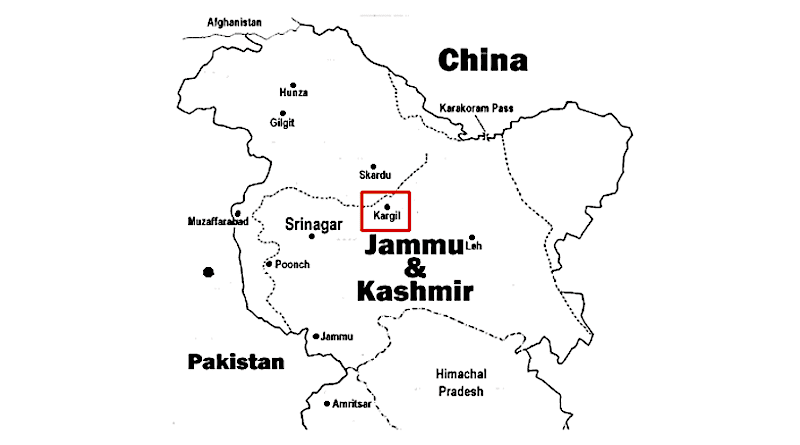The Unexplored Version Of The Kargil War – OpEd
The Kargil War has been studied and researched mostly from the Indian perspective with exception of only few books written which explain the war accounts objectively. But in the hindsight, there are many unexplored & lesser known realities of this war that people have access to. The persuasion that led to this war was the vision of Pakistan’s military leadership who was observing the Indian aggression across the LOC as Indians were working on heavy militarization along the Neelum valley. India in 1984 violating the international law had occupied Siachen Glacier in the Himalayan region. A similar threat was imminent along the LOC at Neelum Valley. Another aim was to cut off the supply lines of India to Indian Illegally held Siachen region. This part of history where Indians were proven to repeatedly initiate the security threats has not been explored and discussed aptly.
Then comes the debate of who won and who lost the war. It is clearly mentioned in the research literature on both sides of the border that Pakistan shook the very base of the Indian military with this expedition. Moreover, Indian military officials have admitted their manifold weaknesses in terms of combat preparedness mainly pertaining to inferior equipment and human resource they possessed at that time. Colonel (retd) Bhaskar Sarkar in his book “Kargil War Past, Present and Future” (1999) identified that Kargil on part of India was a major intelligence failure and it exposed the fault lines in Indian civil-military relations and their ideological differences which jilted the Indian Army.
According to Colonel (retd) Bhaskar Sarkar, Indian military equipment was obsolete, paramilitary forces were not trained enough to fight at that altitude and the existing troops did not possess combat dress kits to fight off the extreme cold of the region. The situation was a national anxiety for India and an international humiliation as the regiments engaged in fighting did not even have enough manpower to deploy men as stretcher bearers.
Pakistan had acquired control of all strategically important areas and brought India in for negotiations but the external & internal pressures led to early culmination of the operations while remaining short of accruing full intended dividend of the war. Both sides suffered a high ratio of casualties and severe injuries.
Another embarrassment for India engraved in the books of history was the fact that they didn’t even come to collect the dead bodies of their soldiers despite multiple attempts from the Pakistani side to give them a safe passage. On the other hand, the soldiers of Pakistan such as Captain Colonel Sher Khan (Nishan-e-Haider) and Havaldar Lalak Jan (Nishan-e-Haider) received admiration from the Indian side due to their valor and courage displayed in the battlefield. So far, the narratives on Kargil war have mostly remained one sided that glorify the Indian side due to massive Indian propaganda that ensued following the war. However, the realities remained unexplored and few people have endeavoured to explore the actual facts based on true war accounts.
To hide and cover up intelligence, operational and equipment related deficiencies in Indian system of forces at the time, fictitious tales of bravery and chivalry were concocted by the Indian side to passify the local public. Moreover, war accounts were also tailored so that strategic surprise that Pakistan achieved by capturing huge swaths of Indian Illegally Occupied Kashmir without knowledge of its military & intelligence tentacles, could be hidden and brushed under the carpet. Indian media was flooded with propaganda stories about Pakistan Army leaving behind its soldiers and officers dead bodies and disowning them whereas on ground its own serving officers were filing citation of awarding highest gallantry awards to the officers and men of Pakistan Army who embraced Shahadat during the Kargil war. Nearly even after two decades, Indian propaganda surrounding the war continues unabated by peddling false and incorrect stories about the war to cover up own blunders and critical deficiencies in all domains.
Humais Sheikh is an independent Defence Analyst based in Islamabad. He has completed his Masters in Defence and Strategic Studies from Quaid-I-Azam University, Islamabad.

